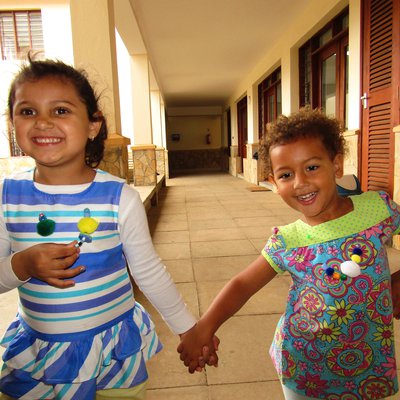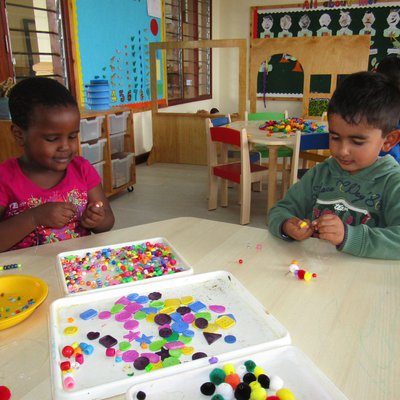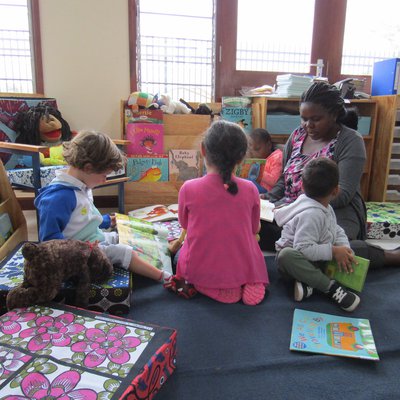Building Friendships in Infant School
21st September 2017
Our children in our FS1 class at BISA Infant School have been learning about friendships and being a good friend this week. They talked about who is their friend in class and why they like to play with them, made a gift for their friend to say 'Thank You', and talked about what makes a good friend using the book 'The Rainbow Fish'.
Establishing relationships with other children is one of the major developmental tasks of early childhood. Friends, beginning in the toddler stage, can help children feel good about themselves, help the child adapt more easily to early childhood environments and help the child build self confidence.

True friendships can be seen in children as young as 2½, but it is more likely to appear in three and four-year-olds. Children are then more capable of coping with the demands of maintaining friendships. It is important not to underestimate the value of these early friendships. They help to support children’s emotional and social development and their understanding of the world around them.
To develop good friendships, now and later, it is important children begin developing the following skills:

- Self-control: being able to wait for what they want, using words to express their feelings rather than acting disruptively or misbehaving, giving others a turn with toys.
- Welcoming: being able to approach and respond to others positively.
- Assertiveness: being able to say what they would like.
- Consideration: being able to say ‘please’ and ‘thank you’, taking turns, being able to lead and follow what others want to do, being able to cooperate and share.
- Play skills: being willing to take part in games and make suggestions for play.
- Communicating: talking and listening to others in a friendly way, saying something to start a conversation.
- Helping: being willing to help others.
- Prediction: being able to understand how others might be feeling based on their behaviour, being able to predict how their behaviour might affect others.
- Coping: being able to respond to rejection, disappointment or disapproval without experiencing too much distress or winning without gloating.
- Empathy: being able to respond to others’ feelings with understanding.
- Flexibility: being open to hearing or learning about other points of view or ways of doing things.









